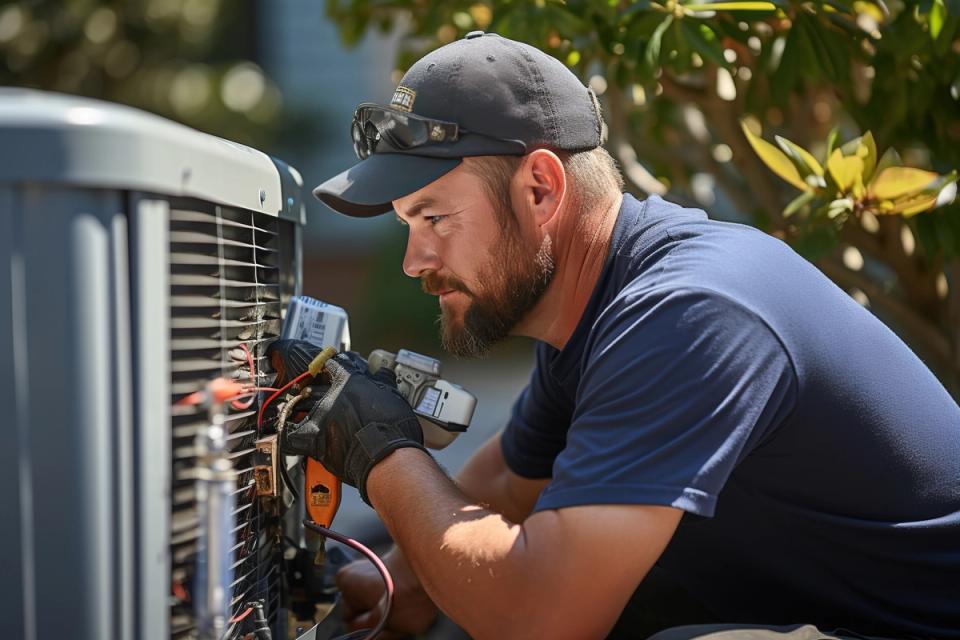
An efficient heating and cooling system is essential for maintaining year-round comfort in your home. Over time, as these systems age or develop problems, homeowners must decide whether to repair or replace them. Understanding the key factors that influence this decision can help homeowners save money, enhance energy efficiency, and maintain indoor comfort.
Signs Your System Needs Attention
Before determining whether to repair or replace, it's important to recognize the warning signs that your HVAC system is struggling:
- Inconsistent Temperatures: Uneven heating or cooling throughout your home indicates potential system inefficiencies.
- Frequent Repairs: If your system requires frequent repairs, the costs may add up to the price of a new unit.
- Rising Energy Bills: A sudden or steady increase in energy bills often signals a decline in system efficiency.
- Strange Noises or Odors: Unusual sounds or persistent odors can indicate serious mechanical problems.
- Age of the System: Most HVAC systems have a lifespan of 10-20 years. Older systems are less efficient and prone to breakdowns.
When to Repair Your HVAC System
Repairs are often the best choice if the issue is minor and your system is still within its expected lifespan. Here are situations where a repair makes sense:
- The Repair Cost is Manageable: If the repair is relatively inexpensive and extends the life of your system, fixing it may be the best option.
- The Unit is Under 10 Years Old: Newer HVAC systems typically have many years of life left, making repairs a cost-effective choice.
- The Issue is Isolated: If a single component (such as a capacitor, thermostat, or sensor) is malfunctioning, a repair may be sufficient.
- Your System is Well-Maintained: If you have kept up with regular maintenance and servicing, a repair could restore efficiency without the need for a replacement.
When to Replace Your HVAC System
Sometimes, replacement is the smarter financial and functional decision. Here are key indicators that a new system might be necessary:
- Frequent Breakdowns: If your system requires multiple costly repairs in a short time, replacing it may be more economical.
- Expensive Major Repairs: If a major component, such as the compressor or heat exchanger, fails, the cost of repair may be close to the price of a new unit.
- Energy Inefficiency: Older systems often have lower efficiency ratings compared to modern units, leading to higher energy bills.
- Refrigerant Type: If your system still uses R-22 refrigerant, which is being phased out, replacing it with a new unit using environmentally friendly refrigerants can save money in the long run.
- Your Home Comfort is Suffering: If your HVAC system struggles to maintain comfortable indoor temperatures, a new unit may improve performance and efficiency.
Cost Considerations: Repair vs. Replacement
Deciding whether to repair or replace often comes down to cost. Use the 50% Rule—if a repair costs 50% or more of a new system, replacement is typically the better option. Additionally, consider the $5,000 Rule, which involves multiplying the age of the system by the estimated repair cost. If the result is more than $5,000, replacing it is usually recommended.
Long-Term Savings with a New System
While a new HVAC system has a higher upfront cost, it offers significant long-term savings, including:
- Lower Energy Bills: Modern HVAC units are designed for efficiency, reducing energy consumption.
- Fewer Repairs: A new system requires less maintenance and fewer costly repairs.
- Enhanced Home Value: Upgrading your HVAC system can increase the value of your home.
- Better Indoor Air Quality: Newer systems come with advanced filtration and humidity control features.
Choosing the Right HVAC System for Your Home
If replacement is the best option, choosing the right system is essential. Consider these factors:
- System Type: Choose between central air, heat pumps, furnaces, or ductless mini-splits based on your home's needs.
- Energy Efficiency Ratings: Look for systems with a high SEER (Seasonal Energy Efficiency Ratio) for cooling and AFUE (Annual Fuel Utilization Efficiency) for heating.
- Proper Sizing: A unit too small or too large for your home can lead to inefficiencies and discomfort.
- Smart Features: Many modern systems include smart thermostats and zoning capabilities for customized comfort.
Professional Assessment and Installation
Consulting with an HVAC professional ensures you make the right decision for your home. Experts can:
- Assess your existing system’s condition and efficiency.
- Provide cost estimates for both repairs and replacement options.
- Recommend the best system for your home’s size, layout, and climate.
- Ensure proper installation, maximizing efficiency and longevity.
Final Verdict: Making the Right HVAC Choice
Determining whether to repair or replace your HVAC system depends on multiple factors, including cost, system age, efficiency, and home comfort needs. While repairs can extend the life of your unit in some cases, investing in a new system often leads to long-term savings, better efficiency, and improved indoor comfort. Homeowners should weigh the pros and cons carefully and seek professional guidance to make the most informed decision.